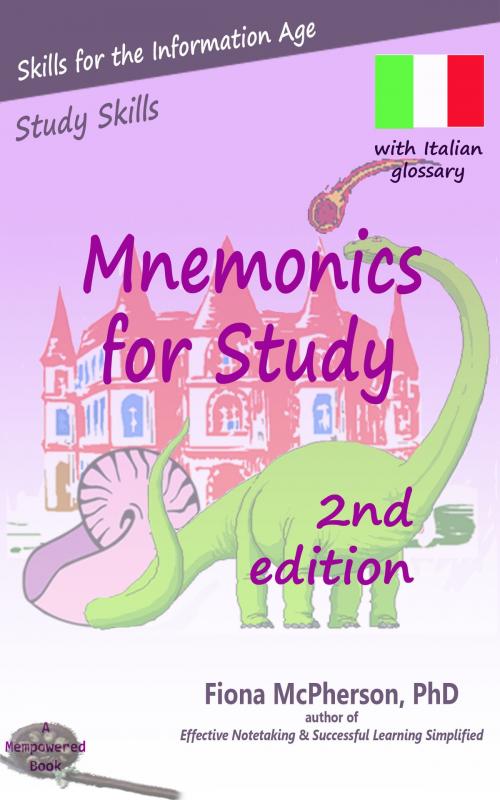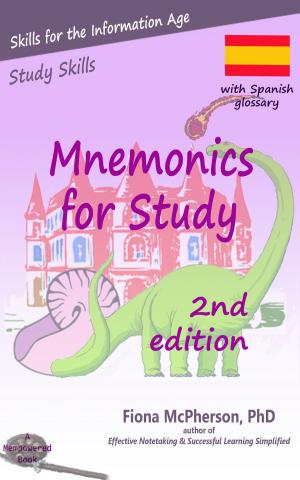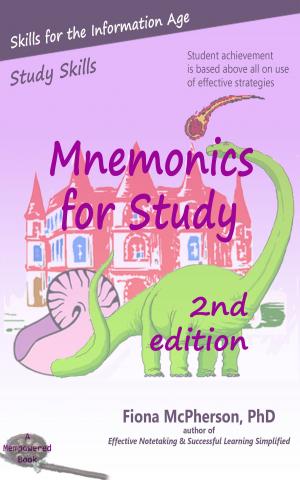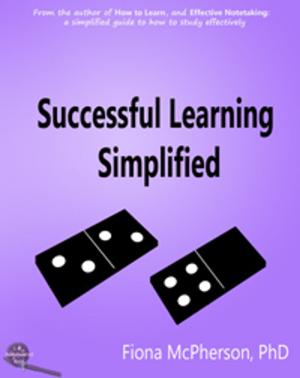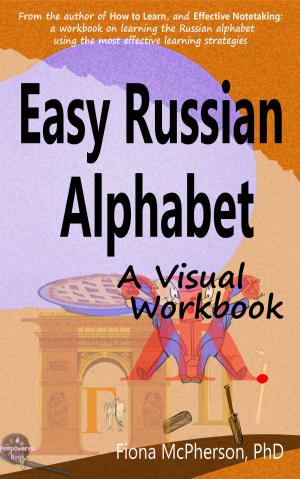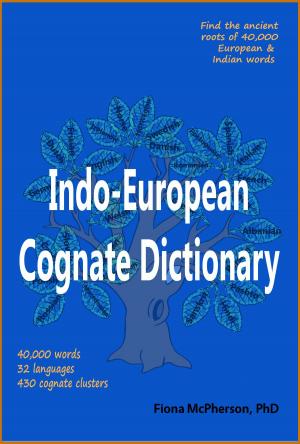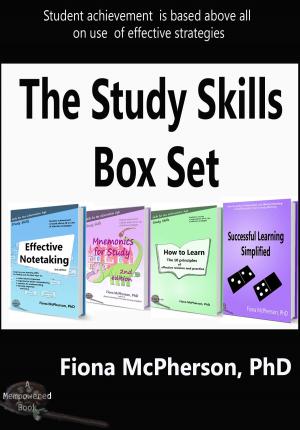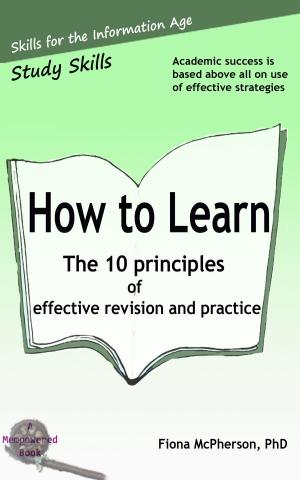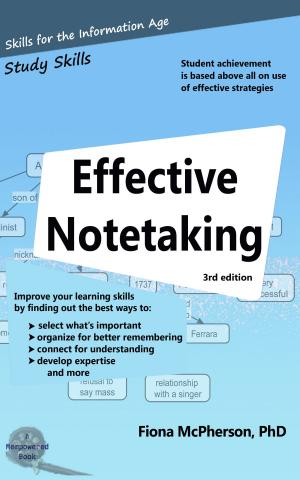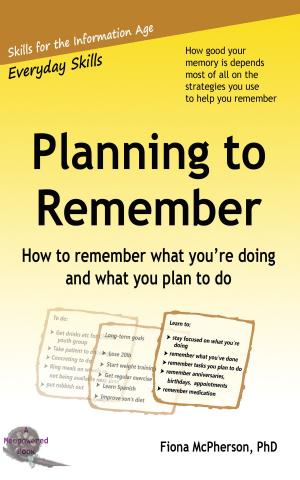Mnemonics for Study: Italian edition
Nonfiction, Reference & Language, Foreign Languages, Italian, Education & Teaching, Study Skills, Educational Theory, Bilingual Education| Author: | Fiona McPherson | ISBN: | 9781927166352 |
| Publisher: | Wayz Press | Publication: | April 5, 2017 |
| Imprint: | Language: | English |
| Author: | Fiona McPherson |
| ISBN: | 9781927166352 |
| Publisher: | Wayz Press |
| Publication: | April 5, 2017 |
| Imprint: | |
| Language: | English |
This version of Mnemonics for Study (2nd ed.) has an extensive English-Italian glossary (750 words) to assist Italian readers. The relevant glossary is provided after each section, and these section glossaries are all included in the Table of Contents for easy reference. A complete glossary in alphabetical order is also included at the end of the book.
A successful student uses effective strategies
Being a successful student is far more about being a smart user of effective strategies than about being 'smart'. In fact it is possible to predict how well a student will do simply on the basis of their use of study strategies.
Mnemonics is one class of study strategy that is of proven effectiveness, but (like only too many effective strategies!) is used far too little. Despite many studies showing the effectiveness of mnemonic strategies, they remain the least frequently used formal memory aid used by students.
Perhaps the main reason for this is that their effectiveness is not intuitively obvious — truly, no one really believes that these 'tricks' can so remarkably improve memory until they try them for themselves.
But while mnemonics do not help you understand your material, they do help you remember those many details you need to achieve expertise in a topic — details such as the names of things, technical words, lists of principles.
Moreover, mnemonics can help you remember tags or labels that allow you to access clusters of meaningful information -- for example, headings of a speech or main points for exam essays. For both these reasons, mnemonics are a valuable assistance to building up expertise in a subject, as well as in helping you 'cram' for an exam.
This concise book covers
- acronyms & acrostics
- rhythm & rhyme
- keyword strategies (including the face-name association method)
- the story method
- the loci or journey method
- the pegword method
- the link method
- coding mnemonics
While you can find basic information on these various mnemonic strategies in many books and websites, Mnemonics for Study goes far beyond the same tired descriptions, using the latest research to explain exactly how these strategies work and are best used.
The hardest part of permanently improving your memory is changing your habits and becoming an effective user of effective strategies. The best way to do this, research has shown, is through understanding how different strategies work, and when and how to use them. Through examples and exercises, that is what this book aims to teach you.
This 2nd edition includes multi-choice chapter reviews, extra images, and a very detailed step-by-step case study showing how to use mnemonics to learn the Geological Time Scale.
This version of Mnemonics for Study (2nd ed.) has an extensive English-Italian glossary (750 words) to assist Italian readers. The relevant glossary is provided after each section, and these section glossaries are all included in the Table of Contents for easy reference. A complete glossary in alphabetical order is also included at the end of the book.
A successful student uses effective strategies
Being a successful student is far more about being a smart user of effective strategies than about being 'smart'. In fact it is possible to predict how well a student will do simply on the basis of their use of study strategies.
Mnemonics is one class of study strategy that is of proven effectiveness, but (like only too many effective strategies!) is used far too little. Despite many studies showing the effectiveness of mnemonic strategies, they remain the least frequently used formal memory aid used by students.
Perhaps the main reason for this is that their effectiveness is not intuitively obvious — truly, no one really believes that these 'tricks' can so remarkably improve memory until they try them for themselves.
But while mnemonics do not help you understand your material, they do help you remember those many details you need to achieve expertise in a topic — details such as the names of things, technical words, lists of principles.
Moreover, mnemonics can help you remember tags or labels that allow you to access clusters of meaningful information -- for example, headings of a speech or main points for exam essays. For both these reasons, mnemonics are a valuable assistance to building up expertise in a subject, as well as in helping you 'cram' for an exam.
This concise book covers
- acronyms & acrostics
- rhythm & rhyme
- keyword strategies (including the face-name association method)
- the story method
- the loci or journey method
- the pegword method
- the link method
- coding mnemonics
While you can find basic information on these various mnemonic strategies in many books and websites, Mnemonics for Study goes far beyond the same tired descriptions, using the latest research to explain exactly how these strategies work and are best used.
The hardest part of permanently improving your memory is changing your habits and becoming an effective user of effective strategies. The best way to do this, research has shown, is through understanding how different strategies work, and when and how to use them. Through examples and exercises, that is what this book aims to teach you.
This 2nd edition includes multi-choice chapter reviews, extra images, and a very detailed step-by-step case study showing how to use mnemonics to learn the Geological Time Scale.
